In the peaceful surroundings of a Monifieth garden a controlled form of killing is taking place.
Alex Whelan has been busy dealing with a rat infestation when I meet him.
His company, Optima Environmental Services has been tackling Dundee’s rodent issues since August 2023.
In March, residents in Dundee’s Beechwood area raised concerns about “cat-sized rats”.
An issue they say has been worsening over the past year.
The largest proportion of Alex’s call-outs are related to these infamous rodents.
But the 28-year-old from Dundee also deals with cats, mice, birds and insects.
“Nine times out of 10 my customers are pretty scared people”, he says.
“They (rats) are nocturnal animals, so a lot of people wake up in the middle of the night and hear scratching.
“There is that fear factor straight away of not knowing what is there. Someone is putting their whole trust in you.
“The issue in Dundee and in surrounding areas is never going to go away. The residents here had never seen a rat before and they do move so fast.
“I can see why they could be confused with cats. When they are moving they look huge.”
What conditions attract rats in the Dundee area?
Alex is wearing blue gloves and braving a t-shirt on a windy Spring day just outside Dundee as we discuss his day job.
During other pursuits, he has consistently fallen back on pest control and has 12 years experience in the industry.
“There is a lot of misconception that rats go into dirty places and that’s really not the case”, he says.
“I’ve worked in the nicest houses in the country. It’s as simple as you could have a broken pipe 10 metres down the road and a rat has just mumbled into your house.”
In this instance a combination of the garden’s proximity to the railway line and birdfeeders have attracted the rats.
They have been feeding on the bird seed and found shelter under a nearby shed.
“The residents were seeing rats walking over the walls and in the flowerbeds”, says Alex.
“The rats were attracted to the area because of the birdfeeders. It’s a free food source for them and they’ve obviously then got comfortable.
“They’ve chewed through the base of the shed and they’re now using it as a nesting area with droppings and urine causing damage.
“The bank of a railway line is perfect because it is an unpopulated and warm area, with a lot of electricity and plant machinery.
“You’ve got somewhere where nobody can get to you. It’s very rare to find a bird or a fox on the bank of a railway.”
What does this Dundee pest control man do to get rid of rats?
“There is always something that attracts a rat”, adds Alex.
“The first thing was to remove the food source. The next step is to install traps.
“We use traps because it causes less risk to the environment in terms of cats, foxes and birds of prey.
“If you’ve got a poison rat there’s a big risk of secondary poisoning. If that is unsuccessful we move onto poison or rodenticide as such.”
Preventing secondary poisoning is a key part of the process, which involves taking a measured approach when it comes to poison.
Alex limits the amount of rodenticide he uses to avoid causing risks to other animals.
“There’s a common misconception of ‘kill everything’, but really it’s protecting the environment so that wildlife can thrive in the area”, he says.
“You can see quite easily where the rat is using through smear marks and footprints. They give you quite a few clues to show you where they are.”
However, Alex also recognises that rats are intelligent animals.
They also suffer from neophobia, which can throw up challenges for pest controllers.
“They’ve got a massive fear of new objects, so if a box or a trap lands in his path that he’s not used to, the rat would turn around and go back again”, he explains.
“It would take a few times to start sniffing and then eventually he starts to investigate and that’s normally when it’s end of Mr Rat.”
All in a day’s work for a Dundee pest controller
This Monifieth call-out is Alex’s first job of the day, before he makes his way to another in Montrose.
He generally books in 3-4 jobs per day, leaving time for last minute emergency call-outs.
Dundee is his main focus, but he also covers Angus and Fife, operating as far north as Stonehaven and as far south as Rosyth.
“I’ll be sitting in my bed at 10pm watching a rat in someone’s loft on a motion camera”, he explains.
“Sometimes you use that just to confirm what it is, especially at this time of year when it’s just coming into bird nesting season.
“One Sunday afternoon I was just sitting down to watch the 4pm football and I got a phone call from a woman who was screaming down the phone.
“I’m used to having scared customers, but she was so upset she couldn’t tell me her address.
“When I knocked on the door I could hear her screaming on the other side. She had been sitting in her living room reading a book.
“A rat just walked along her mantlepiece because they are so nocturnal and light on their feet it can catch you out.
“It’s a great challenge. If I could get a blue light on the van I would.”
What made Alex want to become a pest control man?
However, Alex admits his choice to embrace being a pest control man can prove baffling for some.
But the reward of removing something that could be causing despair for customers that may be feeling intimated or even embarrassed is a significant motivator.
“In a very strange way, it’s the urgency”, he explains.
“The adrenaline rush of ‘right, let’s find it’ and the end result of educating people on how common it is to have a rodent, insect or bird issue.
“Then at the end of it they’re educated and pest free.”
The pest controller carries two sets of clothes with him and is aware of the unhygienic nature of his role.
“In a job like this you care more about hygiene and environmental management, rather than being the guy with blood on his hands all day”, he adds.
What steps can Dundee residents take to ward off rats?
Alex emphasises that more sightings of rats doesn’t necessarily equate to a larger rat population in cities like Dundee.
Their visibility can be dependent on the time of the year and environmental factors, with rats most commonly seen in the summer or autumn.
He highlights the importance of taking certain measures if you own chickens, feed birds or even own a cat.
“You can buy birdfeeders with catches on them that stop the seed from dropping onto the floor. Rats need three things to survive and these are water, food and harbourage
“If you’ve got rubbish in the garden building up that’s not moved for a long time, there’s a good chance a rat is going to use that area to live.
“Bins are a massive one and you see it so often in tenements areas where there’s a shed and the bin lid is open.
“There is food waste going into it and the bags are unsealed. You have a bin plug and if a bin was full of water, the bin company would undo this plug and the water drains out.
“If you’ve got food in the base of a huge bin, the rats come through the base of the plug and eat the food.”
And with cases like those reported in Beechwood, it’s unlikely Alex will be struggling for work anytime soon.
“I really want to educate the community and bring the numbers of rodents down, rather than putting a box down and seeing them in two weeks.
“That’s my mission.”
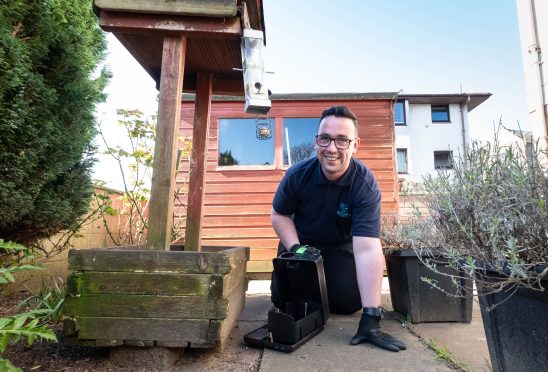
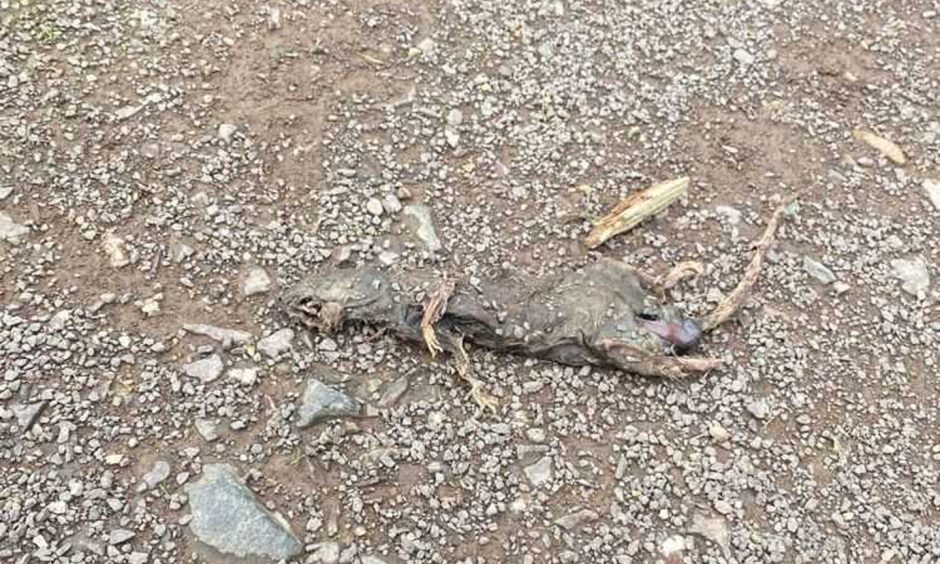
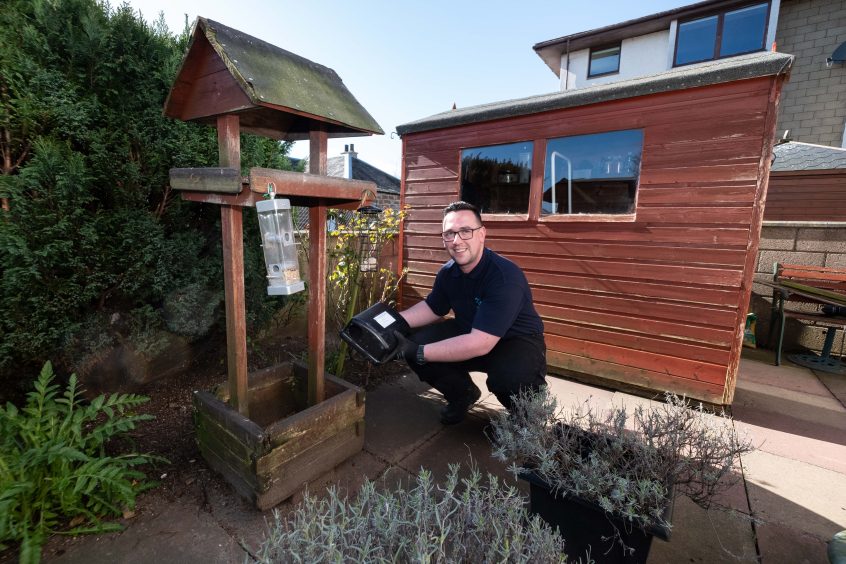
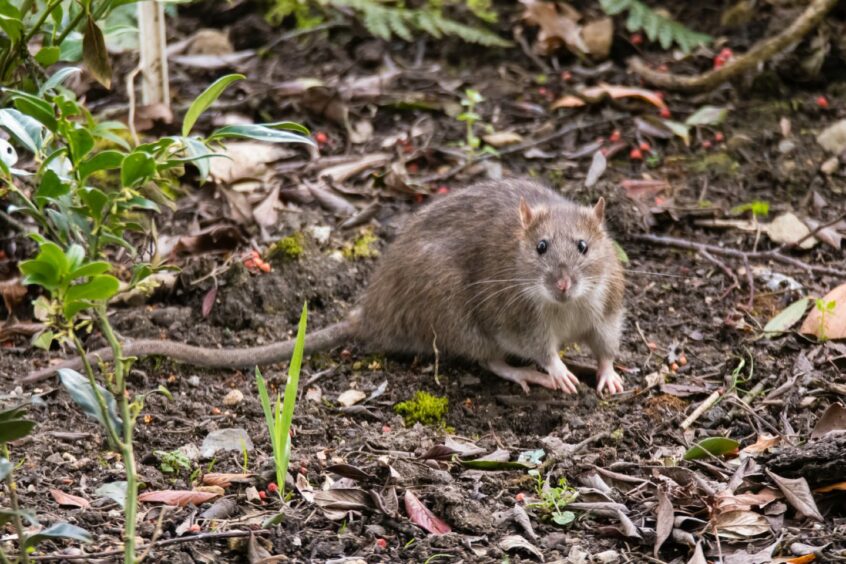
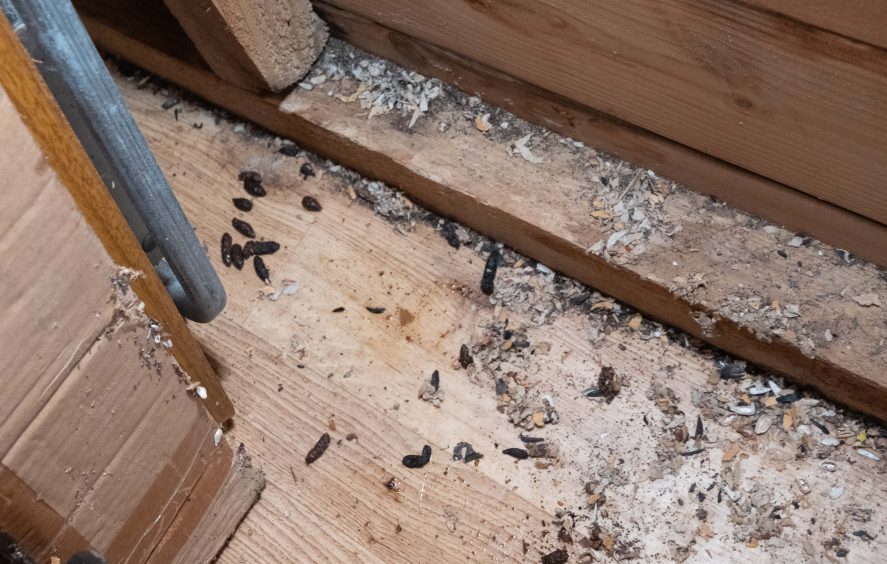
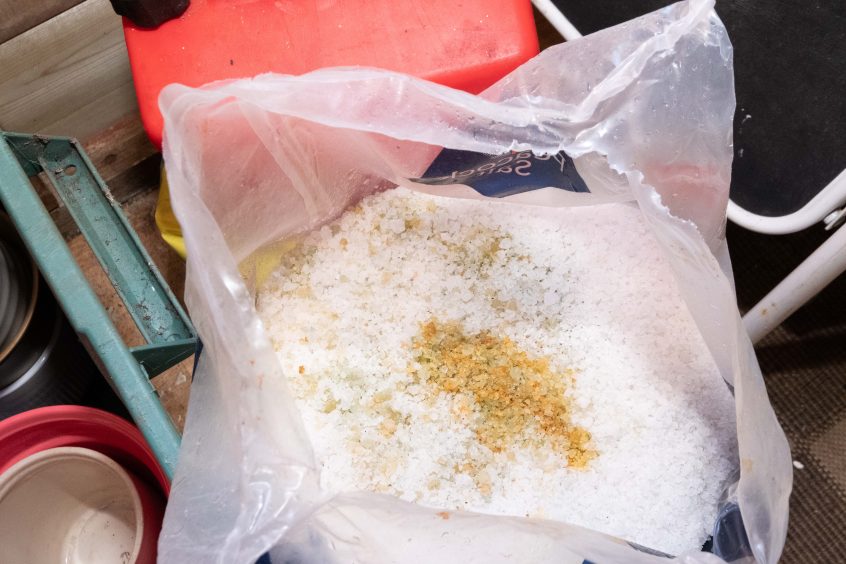










Conversation